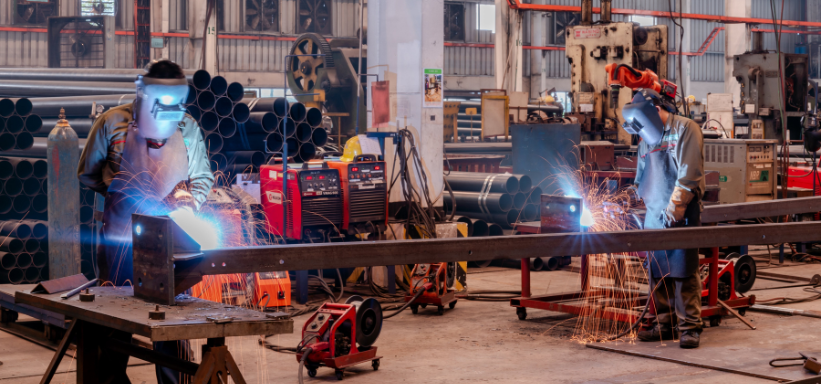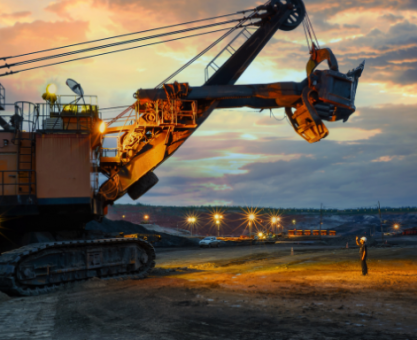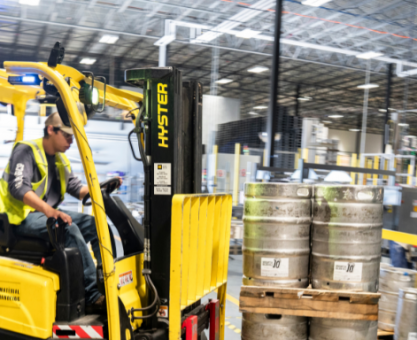Executive Summary
-
Artificial Intelligence (AI) is revolutionizing the manufacturing sector by driving decarbonization efforts.
-
AI technologies enhance energy efficiency, optimize supply chains, and predict maintenance needs.
-
Despite challenges such as implementation costs and technical integration, AI offers substantial long-term benefits.
-
Case studies illustrate AI’s role in reducing carbon footprints and improving sustainability.
-
Industry experts recommend leveraging AI for competitive advantage and compliance with global environmental standards.
Introduction
The manufacturing sector, a significant contributor to global greenhouse gas emissions, faces mounting pressure to decarbonize. As industries strive to meet environmental regulations and sustainability goals, AI emerges as a powerful ally. This article explores how AI technologies are accelerating decarbonization in manufacturing sectors, offering insights for investors, corporate leaders, and sustainability advocates. Discover how AI can transform your manufacturing processes, reduce carbon footprints, and align with global sustainability trends.
Definitions / Context
Artificial Intelligence (AI) refers to computer systems capable of performing tasks that typically require human intelligence. In manufacturing, AI applications include machine learning, predictive analytics, and process automation, all of which contribute to efficient and sustainable operations.
Decarbonization involves reducing carbon dioxide emissions through technological innovations, regulatory compliance, and process optimization.
Benefits / Pros
-
Enhanced Energy Efficiency: AI systems optimize energy consumption by predicting demand and adjusting processes accordingly.
-
Supply Chain Optimization: AI enhances supply chain efficiency by predicting demand fluctuations, identifying bottlenecks, and minimizing waste.
-
Predictive Maintenance: AI-driven predictive maintenance reduces equipment downtime, leading to lower energy consumption and reduced emissions.
-
Process Automation: AI automates repetitive tasks, improving process efficiency and reducing the carbon footprint.
Risks / Cons / Challenges
-
High Implementation Costs: Initial investment in AI technologies can be substantial, deterring smaller manufacturers.
-
Technical Integration: Integrating AI with existing systems requires technical expertise and can be time-consuming.
-
Data Privacy Concerns: AI systems require extensive data, raising concerns about data privacy and security compliance.
Implementing AI for Decarbonization in Manufacturing
-
Assess Current Emissions: Conduct a comprehensive audit of your current carbon footprint.
-
Identify AI Applications: Determine which AI technologies can address your specific decarbonization needs.
-
Develop a Strategy: Create a detailed AI implementation plan, considering budget and resources.
-
Pilot Projects: Initiate small-scale pilot projects to test AI solutions and refine strategies.
-
Scale Up: Gradually implement AI solutions across all operations based on pilot results.
Siemens used AI technology to reduce emissions in their smart factories by 30%. By integrating AI into energy management systems, Siemens optimized energy usage and improved operational efficiency, setting a benchmark in sustainable manufacturing.
— Siemens’ AI-Driven Decarbonization
Expert Tips / Strategic Insights
-
Leverage AI for Competitive Advantage: By adopting AI, manufacturers can enhance sustainability and gain a competitive edge in the marketplace.
-
Stay Updated on Regulations: Monitor global environmental regulations to ensure AI solutions align with compliance requirements.
-
Collaborate with AI Experts: Partner with AI technology providers to ensure successful implementation and integration.
Tools / Resources / Calculators
-
Carbon Footprint Calculators: Use online tools to assess and track your emissions.
-
AI Technology Providers: Collaborate with leading AI firms like IBM Watson or Google AI for tailored solutions.
-
Sustainability Checklists: Implement sustainability checklists to monitor progress and ensure continuous improvement.
Conclusion
AI is a transformative force in the decarbonization of the manufacturing sector, offering significant energy savings, improved efficiency, and reduced emissions. By strategically implementing AI, manufacturers can meet sustainability goals, comply with regulations, and achieve long-term operational benefits. For tailored AI solutions, consult with our strategy team to enhance your manufacturing processes.






















